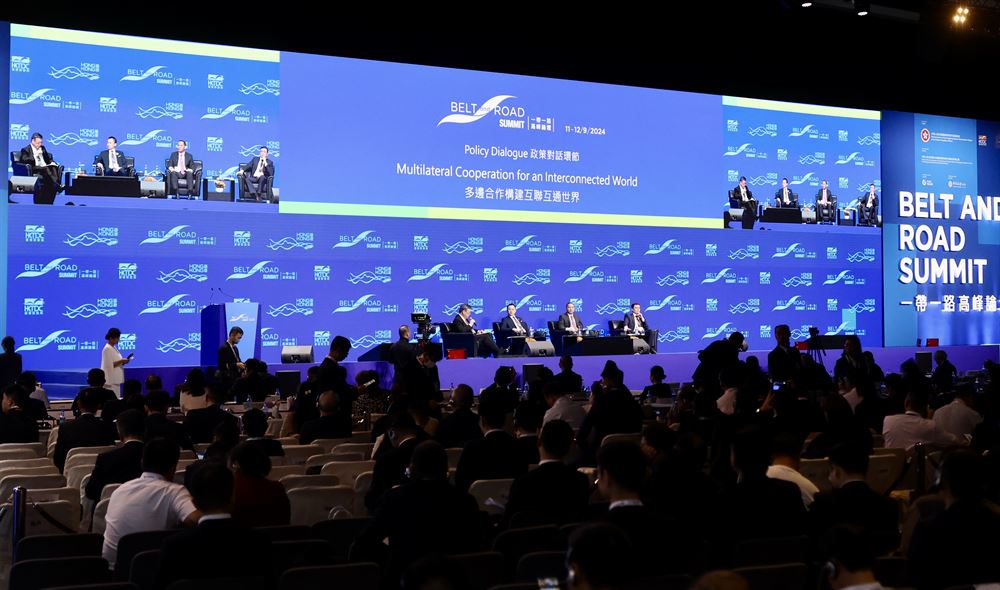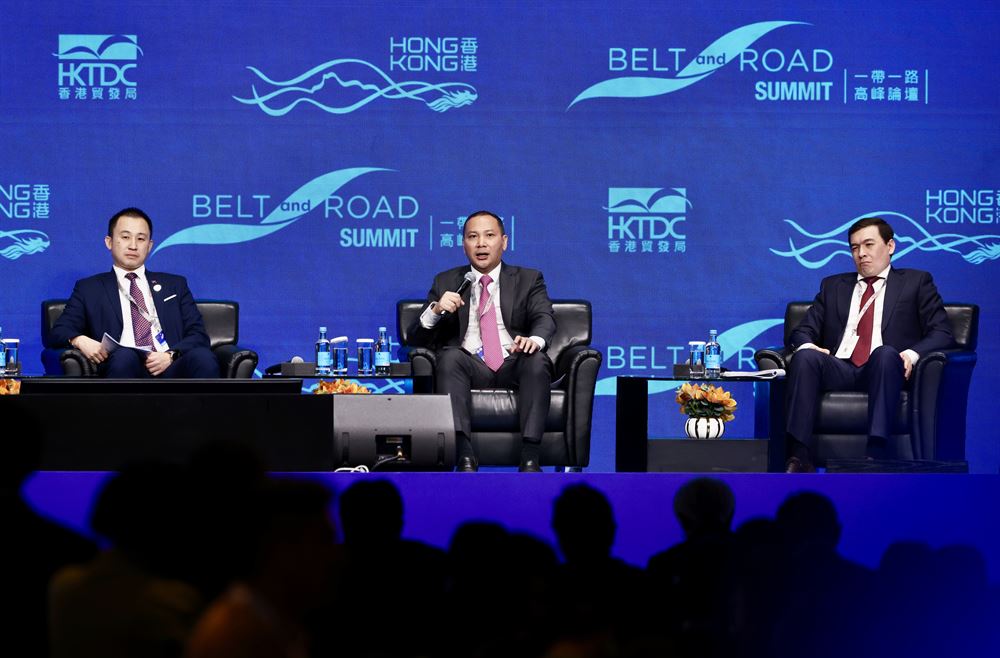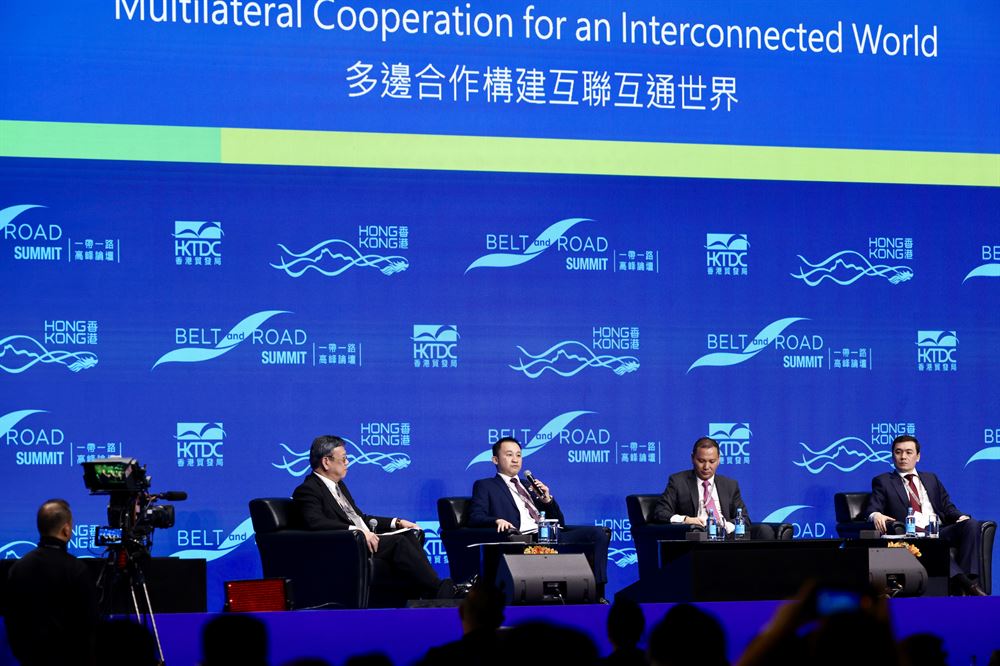
Hong Kong can harness its robust logistics and finance sectors to drive multilateral cooperation and free trade as global supply chains face continuing headwinds, ministerial officials from Southeast Asia and Central Asia said at the policy dialogue session of the ninth Belt and Road Summit held in Hong Kong on Wednesday.
Strategically located, the Hong Kong Special Administrative Region boasts a well-established air and sea logistics network. Flights from the city can reach most Asian cities within five hours, effectively bridging nearly half of the world’s population.
In 2023, the Hong Kong International Airport was recognized by the Airports Council International as the world’s busiest cargo airport, handling 4.3 million metric tons of freight. This marks the thirteenth time since 2010 that the airport has taken the top spot.
As for the maritime industry, an average of more than 300 container ships set sail each week from Hong Kong to nearly 500 destinations worldwide, solidifying its status as one of the busiest ports worldwide.

“Hong Kong is a logistics and transportation hub, both for air and sea freight, and serves as a window to the Chinese mainland,” said Lim Lork Piseth, Cambodia’s secretary of state of commerce.
The city can capitalize on its vast network in logistics to facilitate trade amid global supply chain disruptions that have led to high costs, resources shortages, and inflation, he added.
ALSO READ: Hong Kong's indispensable role in BRI hailed
Lim said he believes that Hong Kong can help Cambodia strengthen its ties with other economies, particularly as the country seeks to reach out to its partners and new markets in the post-pandemic era.
“As a professional trading center, Hong Kong is a strong supporter of free trade and an active player in international trade cooperation,” said Algernon Yau Ying-wah, Hong Kong’s secretary for commerce and economic development.
Under the “one country, two systems” principle, Hong Kong operates as an individual member of the World Trade Organization and the Asia-Pacific Economic Cooperation, having inked eight free trade agreements with 20 economies and 24 investment promotion and protection agreements with 33 economies.

Yau revealed plans for the Hong Kong government to sign a free trade agreement with Peru later this year, and he will be among the Hong Kong delegation to the APEC annual meeting hosted in the South American country in November.
Reflecting on his years of experience in the financial sector and his role in assisting a private equity fund from Jakarta to expand into Hong Kong, Rachmat Kaimuddin, Indonesia’s deputy coordinating minister of maritime affairs and investment in infrastructure and transportation, said that Hong Kong’s financial sector is well-developed, and is accustomed to dealing with big markets.
Kaimuddin stressed that Indonesia needs financing and technological cooperation from developed economies, so as to fully leverage its advantages in energy, metal and labor resources. He said, “Hong Kong could play a big role” in facilitating such collaboration.
READ MORE: A connected, innovative and green Belt and Road
There are three key elements for economic development — profitable industries, professionals, and capital — noted Arman Kassenov, vice-minister of national economy of the Republic of Kazakhstan. He particularly emphasized the importance of funding, saying that Hong Kong as an international financial center can help Kazakhstan raise funds from outside the country.


